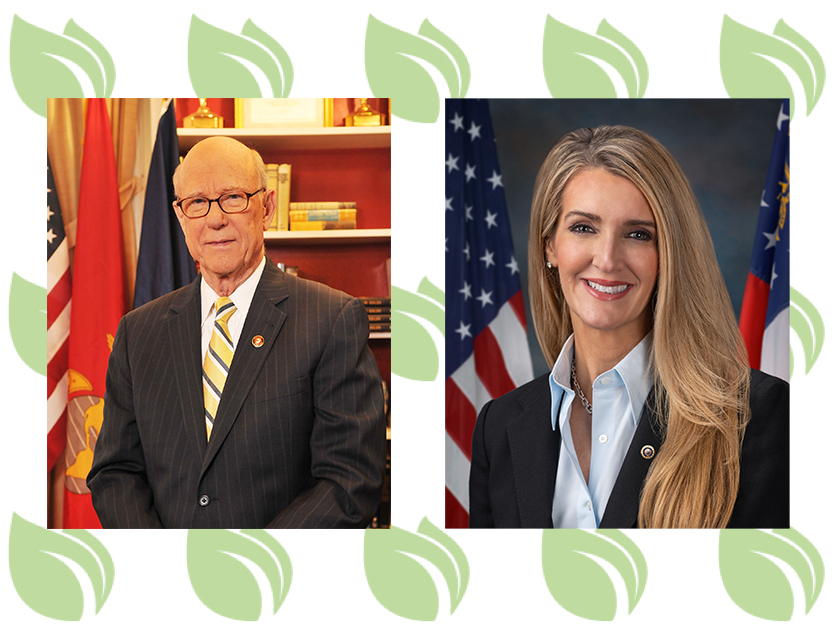Every American has a part to play in slowing the spread of the coronavirus. While many are working from home, an important few are working overtime on farms and ranches to make sure grocery store shelves are stocked.
From harvesting wheat in Kansas to picking blueberries in Georgia, producers are getting up before the sun every day, while also adapting their operations to keep workers safe. They are among the most essential of workers, keeping all of us fed and clothed.
The coronavirus pandemic has hit every link in the food value chain. Net farm income is estimated to drop by nearly $20 billion this year, according to the Food and Agricultural Policy Research Institute. Fruit and vegetable prices are down 50-60 percent. Chicken, cattle and pork producers have been devastated by processing plant challenges that have sent ripples throughout the entire food system. As restaurants closed, orders dropped dramatically. Many Americans have struggled to put food on their tables, while some farmers had little option but to throw away produce as demand changed overnight.
These are just a few of the challenges farmers, ranchers and growers are encountering during the coronavirus pandemic. Our farmers take risks every day and are facing low commodity prices, a challenging trade environment, farm labor shortages and a laundry list of regulations. In short, there are business-crushing uncertainties and hardships in every sector of American agriculture.
On the Senate Committee on Agriculture, Nutrition and Forestry, we hear these concerns from farm country loud, clear and often. We know the hard work and long hours America’s farmers put in, day in and day out, regardless of the challenges.
A farmer wouldn’t put the seed in the ground without the optimism for a good crop. We share that optimism while realizing that farmers need our help, and we are committed to continue working to help the folks putting their livelihoods on the line every day to feed, clothe and fuel America.
Congress and the Trump administration have taken swift and expansive action to help farmers and ensure grocery store shelves remain stocked.
In March, Congress passed the Coronavirus Aid, Recovery and Economic Stability (CARES) Act to help hospitals, families and small businesses in these tough times. The CARES Act included $9.5 billion for agriculture producers and additional funds to replenish the Commodity Credit Corporation. The CARES Act also included $100 million for rural broadband and provisions to expand telehealth and rural health programs to help Americans access health care close to home.
Last month, the United States Department of Agriculture (USDA) began accepting applications for the Coronavirus Food Assistance Program (CFAP). This program will distribute $16 billion in direct payments to producers of beef, pork, dairy, row crops, produce and others whose markets have been disrupted or lost due to the coronavirus. The USDA Farm Service Agency has already approved more than $4 billion in payments.
In addition, USDA is purchasing up to $3 billion of produce, dairy, and meat products for the Farmers to Families Food Box Program, which buys excess product from farmers and distributes it to foodbanks and non-profit organizations. USDA has already distributed 17 million boxes to more than 3,200 non-profits.
Farmers, ranchers and growers are resilient and accustomed to weathering life’s storms. We stand with the millions of Americans who make up our agriculture industry and thank them for continuing to work tirelessly to ensure Americans have nutritious and abundant food.
Sen. Pat Roberts, R-Kan., is chairman of the Senate Ag Committee and Sen. Kelly Loeffler, R-Ga., is a member on the Committee.

